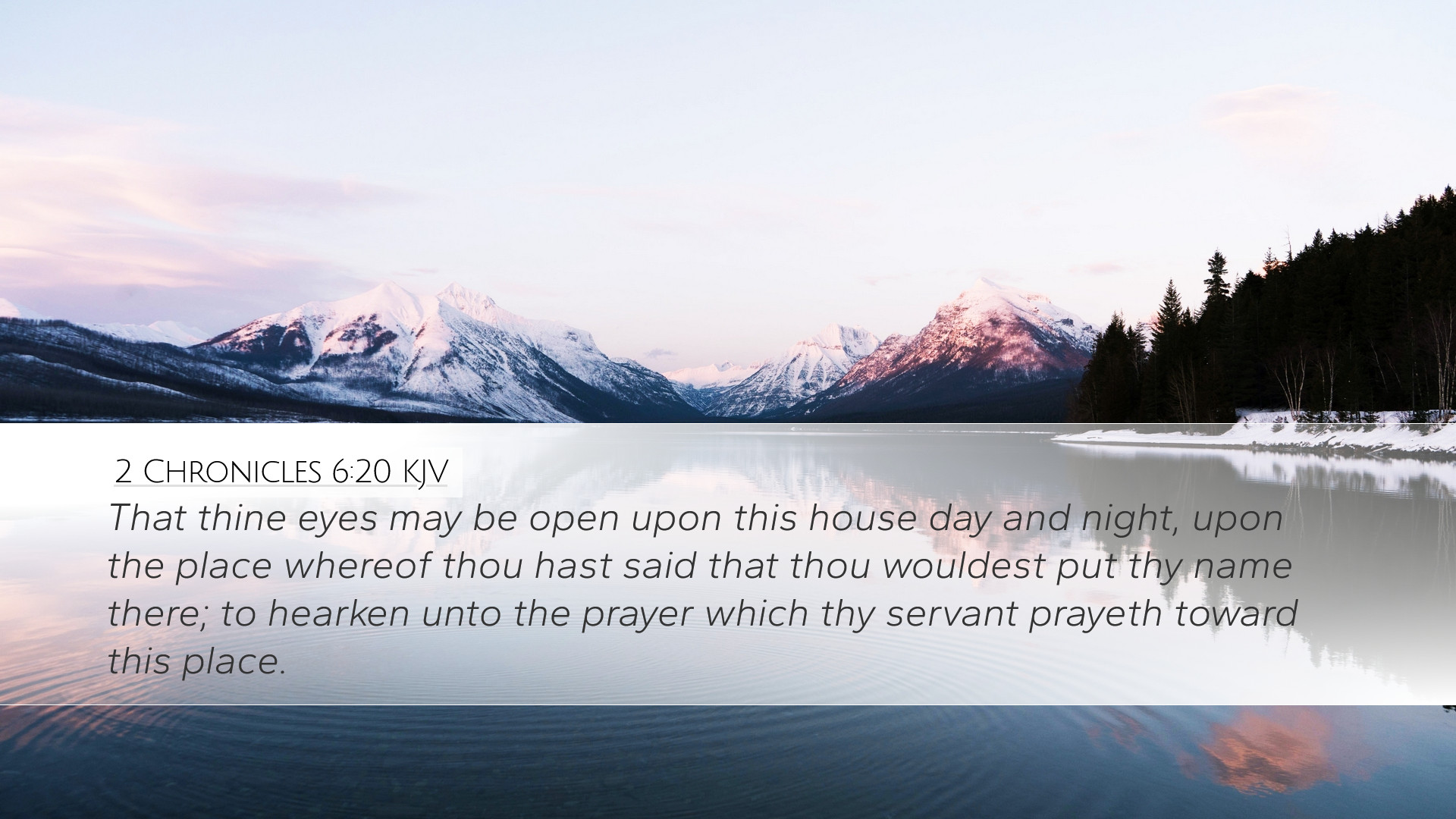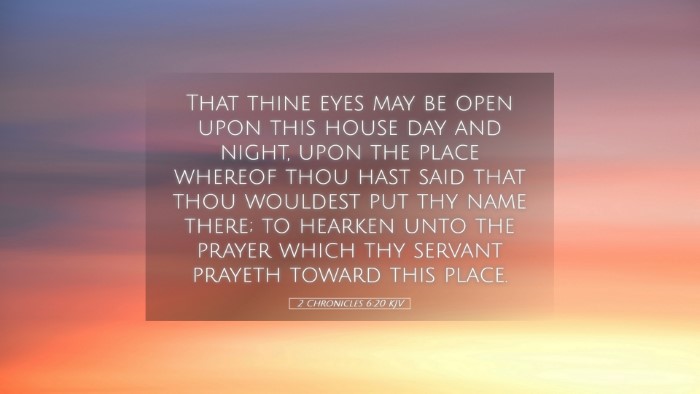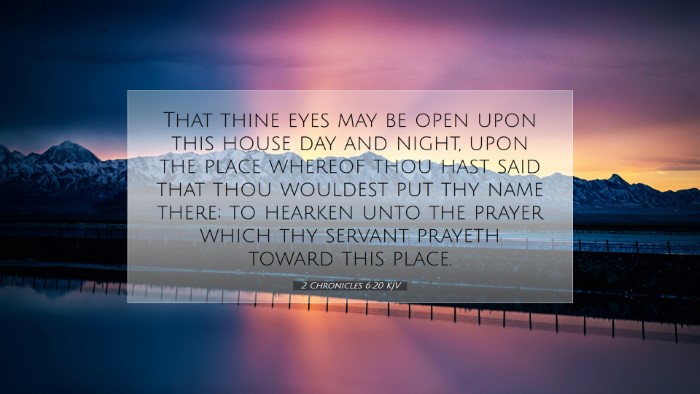Commentary on 2 Chronicles 6:20
Bible Verse: "That thine eyes may be open upon this house day and night, upon the place whereof thou hast said that thou wouldest put thy name there; to hearken unto the prayer which thy servant shall make toward this place."
Introduction
The verse in question forms part of King Solomon's prayer of dedication for the newly completed Temple in Jerusalem. It reflects a deep theological understanding of God's omniscience and the significance of the Temple as a locus of divine presence and human prayer. The public domain commentaries from Matthew Henry, Albert Barnes, and Adam Clarke provide valuable insights into the implications of this verse for understanding God’s relationship with His people.
Theological Significance
Divine Presence: According to Matthew Henry, this verse emphasizes God's readiness to be attentive to the prayers of His people. The assertion that God's eyes will be open upon the house indicates His perpetual watchfulness and presence among His people. God's commitment to be present in the Temple stands as a testament to His covenantal relationship with Israel.
Prayer as Central to Worship: Albert Barnes notes that the phrase "to hearken unto the prayer" recognizes the value of prayer as a vital part of worship. Here, Solomon is not merely seeking God's presence for the sake of the Temple, but is recognizing the critical role that prayer has in fostering a relationship with God. The Temple is portrayed as a sacred space where human voices can commune with the divine.
The Place of God's Name: Adam Clarke elaborates on the significance of God putting His name upon the Temple. This act implies a distinct selection of that place as holy and set apart. The presence of God's name indicates a commitment from God to fill that space with His glory and to be actively involved in the lives of those who approach Him there.
Historical Context
The dedication of the Temple occurs at a pivotal moment in Israel's history. Matthew Henry highlights that this is a climactic fulfillment of Israel's long-awaited desire for a permanent dwelling place for God's presence, contrasting it with the earlier temporary tabernacle. The establishment of the Temple represents stability, continuity, and a profound moment of historical and spiritual significance.
Solomon’s Role: Albert Barnes points out that Solomon's prayer underscores his role as mediator between God and the people. His prayer is not solely focused on the Temple's glory but rather on the humility required to approach God. Solomon invokes God's character and past actions to seek favor for future generations, emphasizing the notion of intercession.
Contemplating the Application
Corporate Prayer and Community: The passage reflects the communal aspect of worship. Adam Clarke suggests that Solomon's prayer reveals the expectation that the people will turn towards the Temple for prayer. This notion can be applied to modern congregational life, where communal prayer is vital to a church's life.
Assurance of God's Faithfulness: The verse is a reminder of the assurance that when individuals or communities pray with sincerity towards God, He is attentive. As highlighted by Matthew Henry, this fulfills a promise to be present with His people, thereby encouraging faith in God's willingness to respond.
The Role of Place in Spiritual Life: While the Temple served as a physical representation of God’s dwelling, Christians today find their ‘place’ in Christ. Albert Barnes emphasizes that believers can call upon God anywhere, drawing parallels to the accessibility of prayer through Christ's mediation.
Conclusion
In summation, 2 Chronicles 6:20 serves as a profound reminder of God’s attentiveness to the prayers of His people and the importance of a dedicated space for worship. The insights gleaned from the commentaries underscore the balance between God’s immanence and transcendence, the necessity of corporate prayer, and the hope found in God’s faithfulness. For pastors, students, theologians, and Bible scholars, this verse and the related commentary invite deeper reflection on the nature of prayer, the significance of sacred spaces, and the continual presence of God in the lives of His followers.


